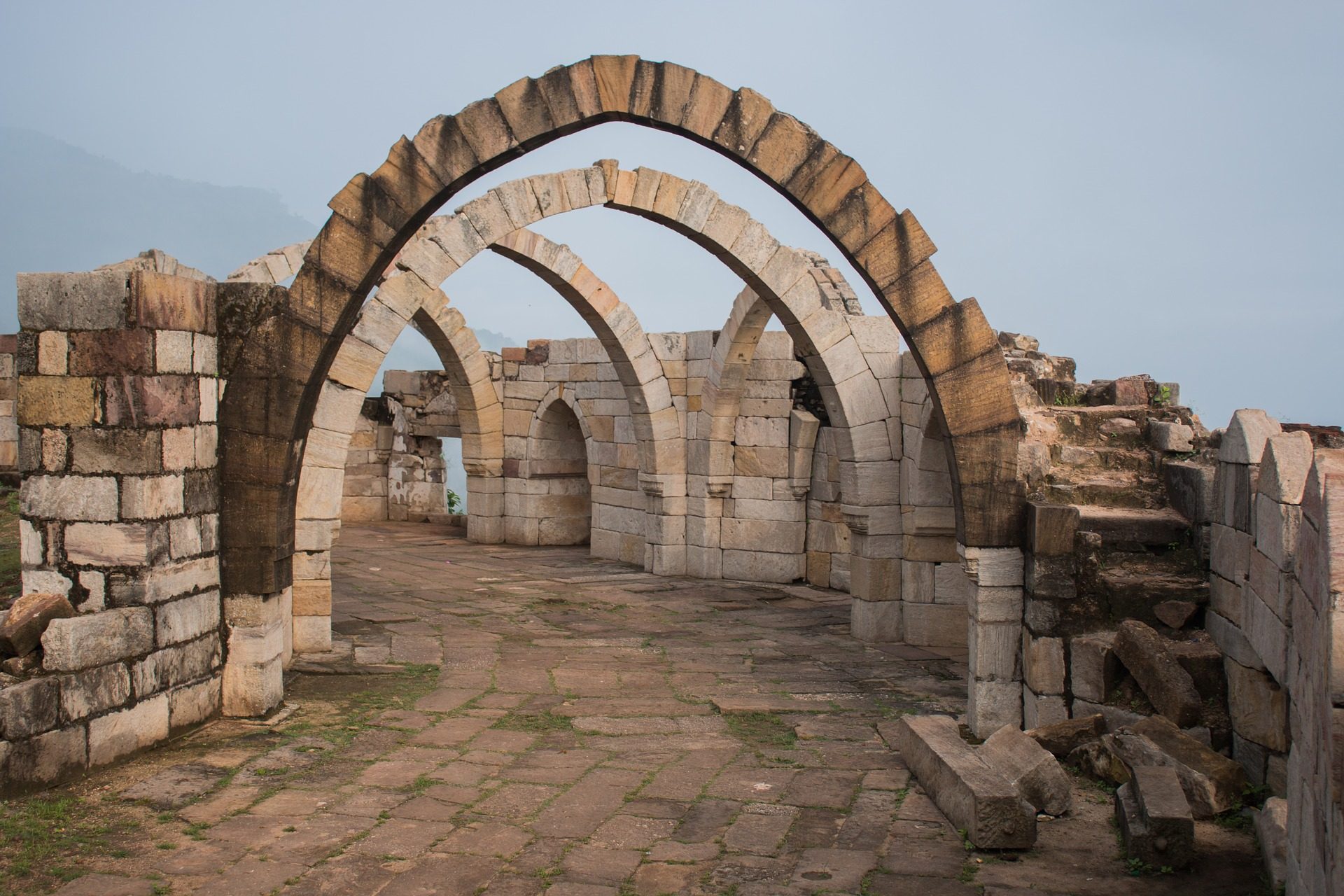

I recently was reading about the life of St. Augustine. He was a very loyal citizen of Rome for much of his life. Though it was a secular state, he believed it provided the only tolerable framework of life for mankind. For Augustine and most other Romans, its fall and disappearance was unthinkable.
 However, by the end of the fourth century the decadence which had afflicted Rome had spread throughout the empire. Augustine was fifty-six years old, living in Carthage in the year 410, when news came to him that Rome had been sacked. It was clearly one of the most dramatic moments in his life, but he took heart that there will be an end to every earthly kingdom and that ultimately God is sovereign over history.
However, by the end of the fourth century the decadence which had afflicted Rome had spread throughout the empire. Augustine was fifty-six years old, living in Carthage in the year 410, when news came to him that Rome had been sacked. It was clearly one of the most dramatic moments in his life, but he took heart that there will be an end to every earthly kingdom and that ultimately God is sovereign over history.
Historians all agree that the most comprehensive study on the fall of the Roman Empire was by English historian Edward Gibbon in his six volume: The History of the Decline and Fall of the Roman Empire.
According to Gibbon, the Roman Empire succumbed to barbarian invasion because it had grown weak and it had gradually lost its civic virtue. He said the following five attributes marked Rome at its end:
First, a mounting love of show and luxury; second, a widening gap between the very rich and the very poor; third, an obsession with sex; fourth, freakishness in the arts, masquerading as originality, fifth, an increased desire to live off the state.
Does this sound familiar?
In disintegrating cultures, people stop believing in morality and yield to their impulses
The person who has written the most on the death of civilization is the great British historian Arnold Toynbee.
In the 1940s, Toynbee engaged in a magisterial study of the rise and fall of world civilizations. Toynbee’s insights into history and the dynamics of his own time are startlingly prophetic.
Based on his study of twenty-one world civilizations – ranging from ancient Rome to imperial China, from Babylon to the Aztecs – Toynbee found that societies in disintegration suffer a kind of “schism of the soul.” They are seldom simply overrun by some other civilization. Rather, they commit a kind of cultural suicide.
In disintegrating cultures, people stop believing in morality and yield to their impulses at the expense of their creativity. They also succumb to truancy, that is, escapism, seeking to avoid their problems by retreating into their own worlds of distraction and entertainment.
There seems to be a pattern in history, where civilizations begin with a strong foundation of law and moral order. This foundation enables them to grow strong and become prosperous, but then over time they decline and eventually die from what Toynbee called “cultural suicide.”
You see this pattern with God’s people in the Old Testament. God led them into the Promised Land where they prospered and were blessed. However, over time, as God describes it through the prophet Hosea:
“As they had their pasture, they became satisfied, and being satisfied their hearts became proud; therefore they forgot Me.” Hosea 13:6.
This is what the great Nobel Prize winning author Alexander Solzhenitsyn observed in his own country:
Over a half century ago, while I was still a child, I recall hearing a number of old people offer the following explanation for the great disasters that had befallen Russia: “Men have forgotten God; that’s why all this has happened.”
Since then I have spent well-nigh 50 years working on the history of our revolution; in the process I have read hundreds of books, collected hundreds of personal testimonies, and have already contributed eight volumes of my own toward the effort of clearing away the rubble left by that upheaval. But if I were asked today to formulate as concisely as possible the main cause of the ruinous revolution that swallowed up some 60 million of our people, I could not put it more accurately than to repeat: “Men have forgotten God; that’s why all this has happened.”
We are told by the Psalmist that God is the fountain of life. He is the source of all truth and wisdom. He lays out the choice we have to make as we seek to live our lives and build our communities:
“I call to heaven and earth to witness against you today, that I have set before you life and death, the blessing and the curse. So choose life in order that you may live, you and your descendants, by loving the Lord your God, by obeying His voice, and by holding fast to Him; for this is your life . . . “
Deuteronomy 30:19, 20
Add grace and understanding to your day with words from Richard E. Simmons III in your inbox. Sign-up for weekly email with the latest blog post, podcast, and quote.

For local orders in the Birmingham, AL area, enter Promo Code LOCAL at checkout to save shipping. We will email you when your order is ready for pickup.
Bulk discounts for 25 or more books! Call 205-789-3471 for prices.